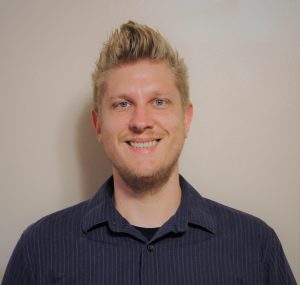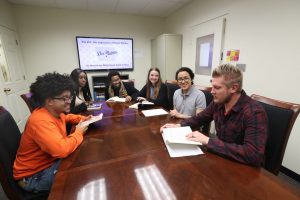We sat down with Dr. Jay Wendland, associate professor of Political Science and the department chair of the History and Political Science Department to talk about some of his favorite classes to teach and the versatility of a History and Political Science Degree.
What is one of your favorite classes to teach?
One of my favorite classes to teach is Politics and Pop Culture in the United States. This class allows me to highlight a wide array of political topics and discuss them through the lens of pop culture. This class gives students some distance between themselves and subject matter that can be polarizing and we are able to have better discussions because of that.
What are some of the other classes you teach?
I teach a variety of classes related to political behavior, which is one of my areas of expertise. I study elections and public opinion and really try to dig into questions of why people behave the way they do politically. Some of my courses are Campaigns and Elections and Public Opinion. In my Politics and Misrepresentation class, we look at issues of representation and how people feel our elected officials represent our issues or concerns.
What do you love about Political Science?
One of the things that really drew me into political science is the fact that the study of politics is really the study of power. To understand political decision making is really understanding those power dynamics. To me, the study of political science is all encompassing. Married into that is the other discipline in my department, history, which really provides a context for all of this. Historians look at questions of change over time and what is going on around some of these big power decisions. When we bring both of those together we get a good idea about what’s happening in the world when certain decisions are being made.
What can someone do with a History or Political Science Degree?
These degrees open the door to any career you are interested in. Our disciplines prepare students to be critical thinkers and make sense of the world around them. Many of our students go on to be attorneys, be successful in business and run legislative offices. Students walk away with an understanding of how to navigate power dynamics. If you understand the system, you can understand how to work within it.
What makes the faculty in your department unique?
We have a total of seven full time faculty members all of whom are very much engaged in their research area. The importance of faculty research is that we are educating our students with the most up to date current trends in these disciplines and research. This is one of our greatest strengths.
Tell us about opportunities available to students within your department
An example of an experiential opportunity I made available to students was during the 2020 presidential election amid the presidential nominating process. With the financial assistance of a Daemen Think Tank Grant, which sponsors student and faculty research collaborations, I traveled with five of our students to Iowa which was at the time, the first state to cast their vote in the presidential election. Students learned first hand why the small midwestern state had such an important role in the process. They interacted with Iowa voters, and met several candidates including Bernie Sanders, Elizabeth Warren, and Joe Biden, who went on to win.
Since the visit, the order in which states vote has changed so this ended up being one of the last opportunities students would be able to witness in Iowa itself. When we came back, the students and I did an independent study course together and subsequently wrote a research paper.


